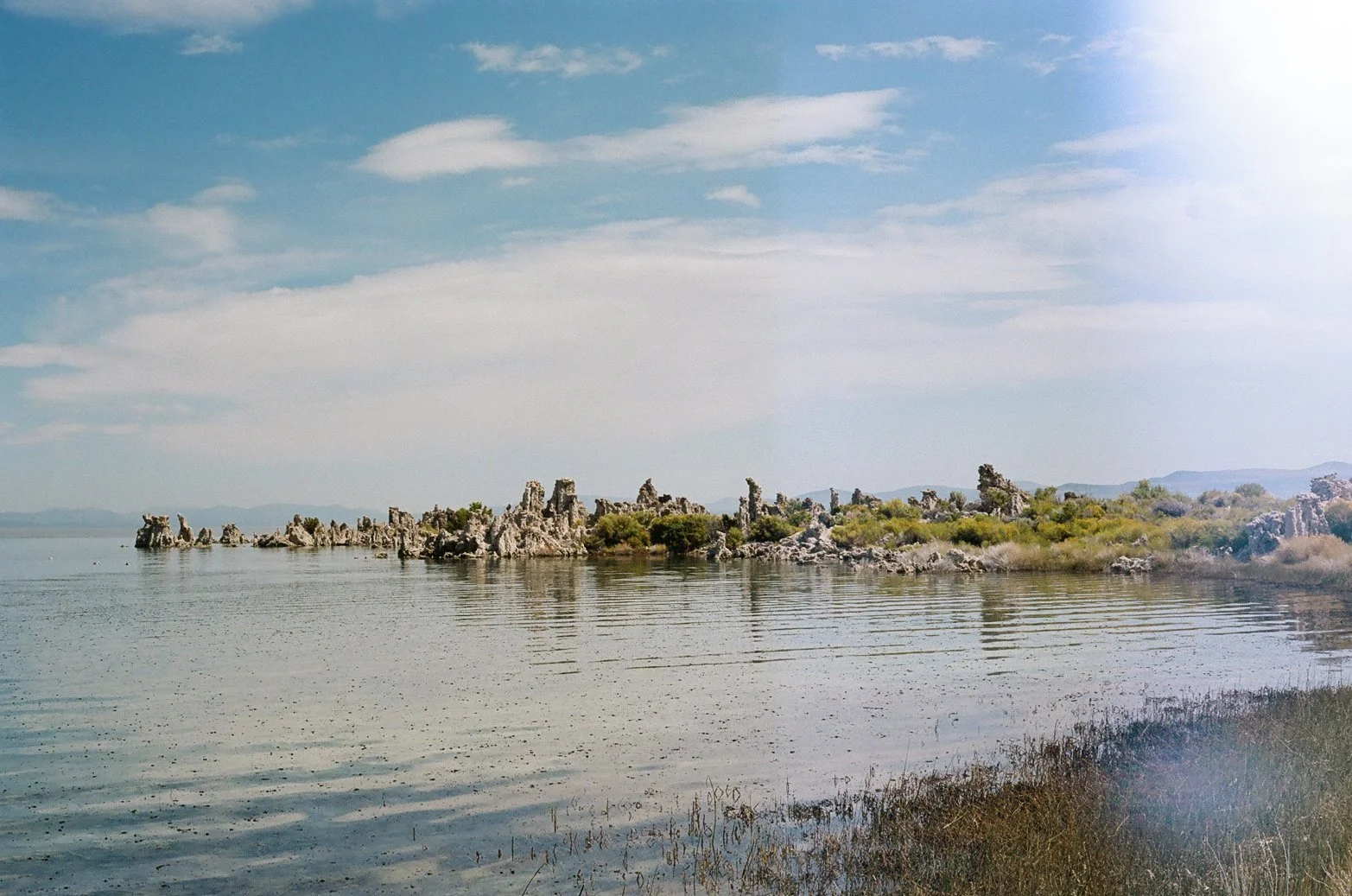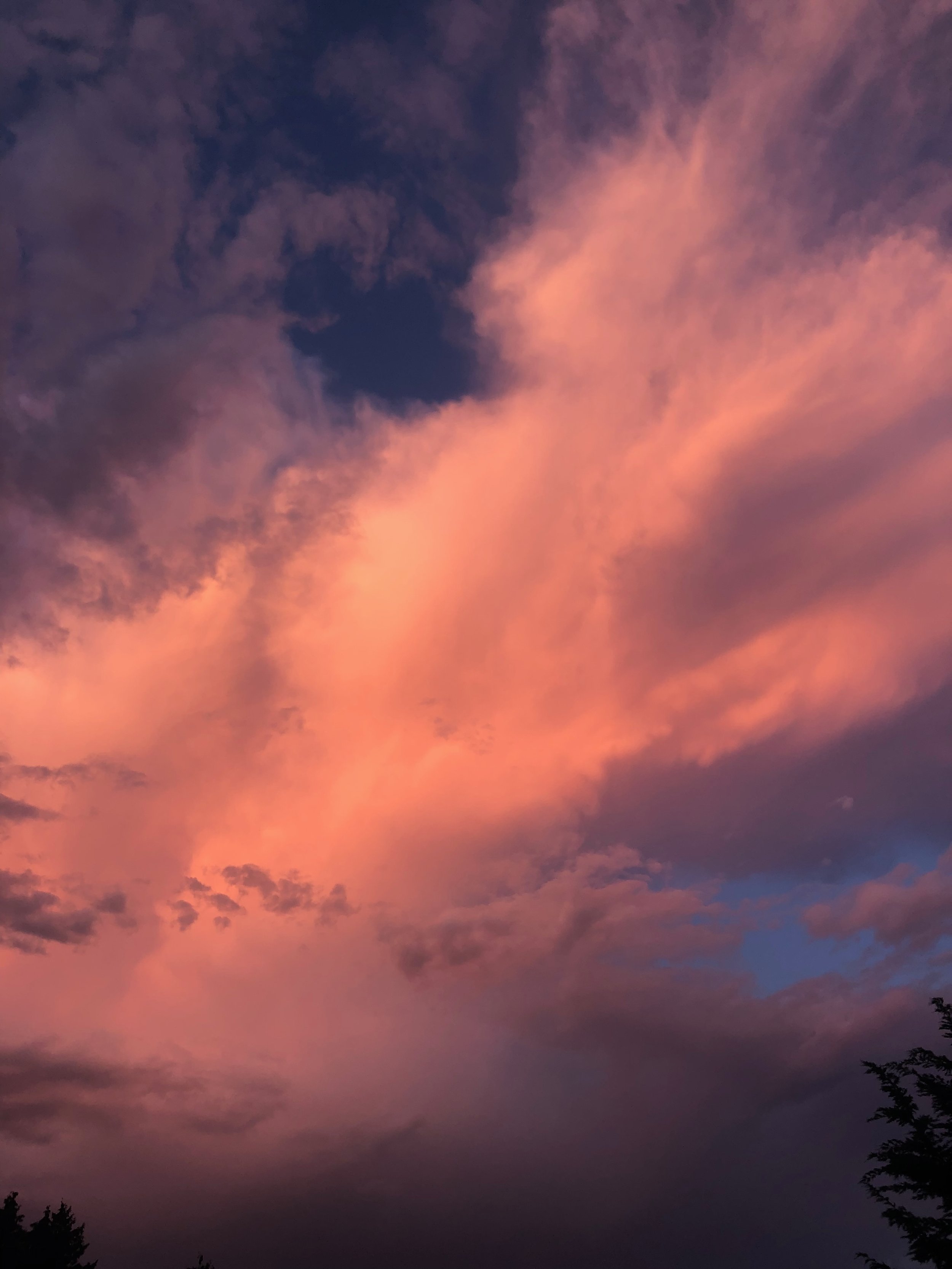In the ‘before times,’ I tried to watch the 1928 silent film The Passion of Joan of Arc. While it’s not exactly a horror movie, the twisted, derisive faces of the clerics who interrogate our awe-struck protagonist made my blood run cold and I could only watch parts of it. The actor who played Joan, Renee Maria Falconetti, never acted again. Perhaps it was also too much for her. I imagine being swallowed whole by the archetypal energies of ‘dangerous heretic’ that Joan of Arc’s story must have opened up in her.
In the early 15th century, a 19-year-old woman’s personal relationship to God is so threatening to the official powers’ edifice of truth that burning her at the stake is required to condemn her soul and silence such heretical thought. Six hundred years later, on this progressive lip of the 21st century, differences in thought or opinion are still so intolerable that we find ourselves in perpetual reenactment of these witch trials of yore.
Witness what can happen when you express a controversial opinion in today’s public square. Consider JK Rowling, author of the Harry Potter books. In my quest to understand the ‘witch’ at the heart of the current raging war about gender, I listened to all eight episodes of The Witch Trials of JK Rowling. It’s an extended interview with the writer as well as with many other cultural critics and activists from many sides of this explosive territory.
Whatever opinion you hold of JK Rowling, even if you see her as the ‘righteous intolerant’ vs the victimized ‘heretic witch,’ listening to this series will certainly remind you of her essential humanity and the truth of the circumstances that shaped her. In the more beautiful world I imagine as possible, we’d spend less time assailing the ‘villains’ and more time listening to stories like Rowlings’, as well as those of the many people challenging her.
First, after the publication of the first few Harry Potter books, Rowling was accused of cavorting with the devil by Christian Church leaders. Parents tried to eliminate her books from school libraries. They were believed to be teaching children witchcraft and devil worship.
Years later, she expressed her support for a woman questioning a new British law that would allow people to assign themselves any gender without proof of gender transition. Her fear and fury for what felt like the silencing of biological women’s safety concerns were met with another call for her excision. Scathing social media posts from the time play the ‘ding dong..the witch is dead’ song clip from the Wizard of Oz as if casting a spell from a manual on the dark arts written by Severus Snape.
So why are ‘witch trials’ so in vogue? Why do we so quickly forget what it feels like to be the outcast when we join the righteous throng? And why does it feel so unsafe to express ideas that fall outside of what feels like a narrower and narrower script?
The endless finger pointing we can gorge upon, both in private and across most media, fully saturates our human theatre. If this were a disease, we had a bad case, but after November 2016, we seemed to have entered an acute phase. Public figures are always at risk. Donald Trump and Hilary Clinton became each side’s heinous ‘other’ and our fixations on vanquishing them transformed into derangement. In our derangement, we lost our ability to think clearly, to value nuance, or find the grounding reality check that is humility.
Obviously, we’re not all deranged, but the constant ad hominem and the increasing intolerance for diversity of thought in our culture reveals a collective madness.
Even outside the public sphere, within our most intimate relationships, to challenge the assumptions a relationship is built upon can become a heresy to the challenged. It can be terrifying to speak up for ourselves, to set boundaries, to be vulnerable within a culture of stoicism and ‘keep on truckin.’ So we silence ourselves, until we go ‘mad’ one way (flight, emotional purge) or another (depression, despair).
A path to more sanity? One idea is to explore the ‘heretic witch’ and ‘righteous intolerant’ that live inside us and see if we can broker a peace deal. Without meeting these two aspects in ourselves, we’ll just keep projecting them out onto the ‘bad people behaving badly’’ and sustain this exhausting witch drama ‘til we’ve burned the whole damn thing to the ground.
Lest I sound like I’m sitting on some high horse, meet my ‘righteous intolerant,’ since everyone else who’s close to me already has. In my early 20s, I favored the death penalty, no matter the fact that our flawed justice system kills innocent people, because it seemed so ‘obvious’ that we should follow the principle of an eye for an eye. Even today, I watch how self-righteousness I can be about who are the good guys and who are the idiots. Even though I’ve softened the harshest edges of this character, in her heyday, she was a relentless didact and occasionally a cruel fascist.
When George W. Bush Jr. was reelected in 2004, I fell into my own kind of aggrieved derangement. Besides the whole WMD fiasco, it seemed insane that anyone would vote for someone who could not string an intelligent thought together. One of my cousins, who’s like a brother to me, readily admitted he voted for Dubya and my ‘righteous intolerant’ took over. I accused him of sacrificing future generations and of many other things too hyperbolic to mention.
Then I played out his excommunication and didn’t talk to him for a long time. I doubled down when Trump was elected and banished him again. In this ideological war I was in, it was I who chose to make his political opinions heretical to my worldview, losing connection with one of my most cherished friends.
A few years later, I had the masochistic pleasure of switching roles to play the ‘heretic witch.’
My first public heresy was when I sent an email to my Seattle contact list explaining why I was supporting Cary Moon for Mayor. Cary Moon appealed to me for many reasons, but when I wrote that it was Cary’s projection of a more feminine leadership style that set her apart from the competing candidate Jenny Durkan, an assertive prosecutor who also happens to be a lesbian, I was called out as a bigot. No matter my intent or others’ misinterpretation, the language I used was hurtful and a problem.
This was still early on in the gender wars but my comments were so inflammatory that they printed an article about the controversy in Seattle Gay and Lesbian News and the Durkan campaign used the ‘news’ that Moon supporters were homophobic to leverage fundraising efforts at the national level.
For weeks afterwards, I sought to understand my offense. Though after a while, I stopped trying because the shame of the public outrage piled on top of the shame I already felt for my supposed homophobia cut off my desire to learn, which is the problem with shaming in general. I do now have much more clarity about why my comments were so triggering, but I still get confused within the current cultural debates around gender and sexuality. In the end, I found myself retreating from local politics altogether after having been active in them since I moved to Seattle 30 years ago.
And now to an accounting of my most recent heresy starting in 2020. The year that marked the end of the ‘before times’ for me. When Covid became the great egregor of our collective fears, my fear response was at first to freeze. Like the rabbits in my neighborhood who stand like statues when my German Shepard and I walk by--the prey becomes invisible and the predator and I just plod along without notice.
After a few weeks in freeze mode, I set about to understand the landscape. I read as much as I could and came across some research from John Ioannidis, a professor of medicine, epidemiology and population health at Stanford. His analysis showed that the infection fatality rate for Covid was much lower than we were projecting, especially for people under 70. I started to thaw a bit from my rabbit’s crouch but soon realized that his work was being mostly ignored. In fact, a lot of medical and health experts with diverse opinions were unable to enter the conversation or were quickly maligned as Trump supporters, another heresy among liberals. The collective fear, and the corrosive effect of Trump derangement syndrome, had shut down questions and dialogue almost completely.
It's probably an understatement to say that living in Seattle with a more nuanced view of the Covid situation put me in the minority. To admit I had questions about anything—the economic and public health impacts of lockdowns, the massive transfer of wealth that was happening in front of our eyes, the many inherent contradictions of the various public health recommendations, the concerns about a drug made at ‘warp speed’—was terrifying. People would accuse me of being a Trump supporter, which felt jarring and wrong given my life’s work and publicly stated values.
What about the healthy and boisterous debates the academic institutions I’d so diligently studied within had long promoted? What about the dangers of a single story which Chimamanda Ngozi Adichie spoke to so eloquently in 2009? What about the more urgent need to stick together in a crisis, even if what scares us may be radically different, something I tried to write about as a way to spark conversation in late 2021?
No, there was no room for any of this. So, I stayed silent, except in private with the few others who were raising similar questions.
When the vaccine became available, I had a very visceral ‘no.’ Not because I’m uninformed, anti-vax or listen to Fox News, for none of these things are true. But because I had a history of being in the ‘very small percentage of people my age who’ -- develop breast cancer at 31, lymphedema from radiation treatments at 32, a hip replacement at 50. My calculation of the risk from a vaccine that didn’t appear to stop transmission and did have some adverse effects vs. the risk from getting Covid was clear. To me anyway.
But my personal health decisions related to what I put in my body didn’t matter to most people. A few of my closest friends sought to understand. Some finally did and some may never. Someone said they would never forgive me. Without knowing that I was unvaccinated, a dear friend intimated that he hoped that all the unvaccinated people would get sick and be refused care. Another colleague who wasn’t aware of my vaccine status said, while sitting next me, that he believed people who did not get the vaccine were essentially ‘abhorrent.’
Abhorrent. A word found among a family of words like abominable, loathsome, vile, and evil. There it was. Orthodox clerics rooting out the heretics. Burn the Witch.
Yet like grace, when it befalls us, or like the sudden liberation we feel upon waking out of a nightmare, more humility started to blossom within me.
When confronted by other people’s radically different viewpoints, I couldn’t sustain my kneejerk, derisive critiques and tried instead to understand what shaped them. It was more difficult not to see the truth of other people’s humanity, no matter how hard they made it. And aggrieved righteousness hasn’t come as easy ever since. Yes, I still get revved up about atrocities and the people who appear to be enacting them, but by becoming the ‘dehumanized,’ I was learning more humility on a very fast track.
Sitting in this soup of others’ condemnation for my heretical moments, I felt deeply humbled and ashamed for my past intolerance. I reached out to my cousin to share what I’d learned from being on the receiving end of public abhorrence and offered my humble apologies. In Hawaiian cosmology, this kind of peace offering is called making things ‘pono’ or bringing things into balance. The Ho’oponopono prayer can be condensed into “I love you, I’m sorry, thank you, please forgive me.” There is certainly much more of this I need to do.
But at the societal level, it’s still not entirely clear what’s behind all this blaming and shaming. Why are modern ‘witch trials’ infusing every aspect of our culture, even our intimate lives?
One explanation is based on my own experience with fear. The more fearful I am, the more likely I am to see the world as a threatening place with indecipherable ‘villains’ planning our demise. My protection is to hold more tightly to my point of view, to become orthodox in my thinking. And I am safer still when surrounded by others who hold those same points of view, thus creating a collective orthodoxy. To create an orthodoxy at scale, a set of beliefs framed as ‘right,’ while others are fundamentally ‘wrong,’ is to also create the heretics we so long to convert or eliminate.
Orthodoxy creates heresy. It’s just a mirror, a reflection. A physical law as it relates to polarities. Adjacent one another like ‘hand in glove.’
If either of these polarities—rigid, controlling narratives or challenging, rebellious ones—has become a fixation, the real work is to look at our fear. Because fear has so many of us by the short hairs whether we are consciously aware of it or not. Sometimes the fear is hard to pin down. For me, koyaanisqatsi, a Hopi word meaning ‘chaotic life out of balance,’ and also a haunting film by Godfrey Reggio, helps to give it form. It’s as if we know we’ve reached such an extreme imbalance that passing through these times of great chaos and loss seems inevitable.
Who’s immune to such visceral knowing? I wager few to none. Though some of us can and do insulate ourselves with comforts, distractions, and false certainties if we have the resources to do so. Regardless of resources, all of us will reach for whatever we can to avoid or suppress the fear. Reaching becomes dependency, dependency becomes addiction. And by following our addictions, we travel far, far away from ourselves, ironically the safest, most inviolable home there is.
I’ve spent a long time away from this hallowed inner home, exploring the world outside me through acquisition and creation of knowledge, resources, achievements, lineage, identities, experiences. Doing and becoming! By comparison I’ve spent very little time exploring the world inside me, listening, witnessing, feeling, wondering, breathing, accepting ’what is.’ Just being and allowing.
If this is also a collective phenomenon as I believe it is, it’s no wonder the world outside us is so despairingly out of balance. In our quest to experience so much ‘doing and becoming,’ we humans forgot almost entirely about the other half of existence -- the ‘being and allowing’-- to bring balance.
Doing yields to Being. Becoming yields to Allowing. And back again, within an infinite cycle.
Central to the Taoist cosmology of Chinese culture is seeing life as constant cycles propelled by the tension between polarities and their innate drive towards harmony and balance. The related ancient oracle of the I Ching was designed to guide us to become more aware of these cycles so our choices reflect that balance. In a recent evolution of the I Ching, Spring Cheng and her partners have mapped the polarities of doing, becoming, being and allowing, as four quadrants pointing to our inner domain, as described in their research The Resonance Code.
While these teachings have definitely been part of my path, there’s an endless array of ways into and through the forest to return to ourselves and come back home. As many ways, in fact, as there are people. But playing the parts of ‘righteous intolerant’ and ‘heretic witch’ was potent medicine and carried me much farther along that path than I could have imagined, even if it was damn uncomfortable.
Some of you may be reading this and thinking, why in the world would she want to dig up things from her past that might bring even more criticism and rekindle old shame? Some of you may have stopped reading a while ago because I became, from your view, a heretic.
Well…I wrote this piece for several reasons.
Predominantly because I believe if more of us chose to consider our orthodoxies and the fear that generates them, we’d have less need for heresies. With less of both, we have a chance of tempering the relentless suffering we’re inflicting on ourselves and bring things more into balance.
But also because I thought my story of finding more humility might inspire others. Inspiration has always been my greatest motivator to move past sluggish resistance and embrace novelty. And if humility were running for president, I’d vote for her.
Finally, because writing this piece, something that’s taken much longer to craft than I thought it would, has been a powerful way to bear witness to some neglected parts of myself, parts I didn’t think I had the courage to witness, much less reveal to others. Yet by witnessing them, we -- me and my parts — have been rendered more whole. And together, jostling about inside this resilient 56-year-old human form, we have a much better chance of finding our way home.











